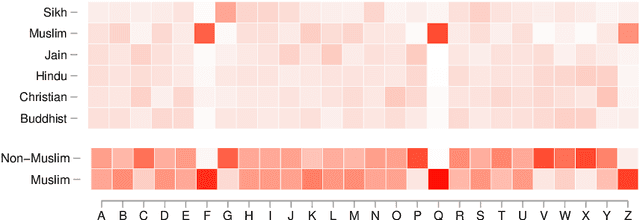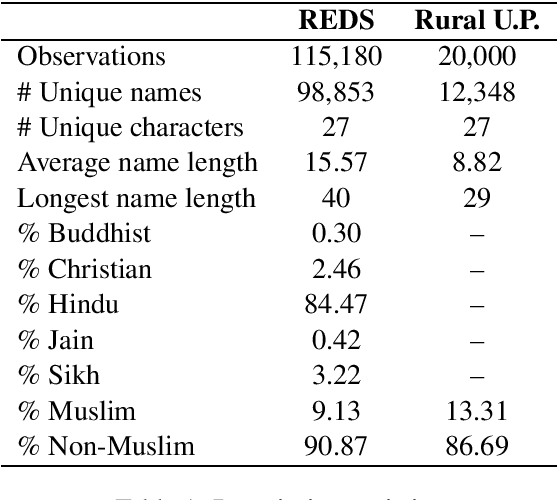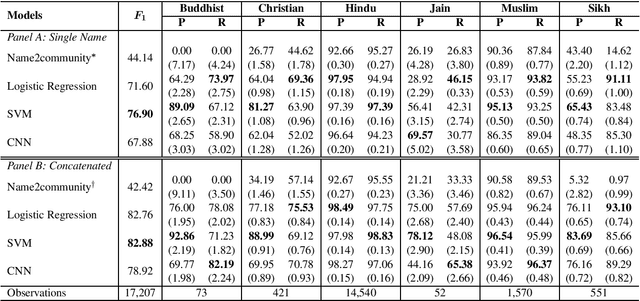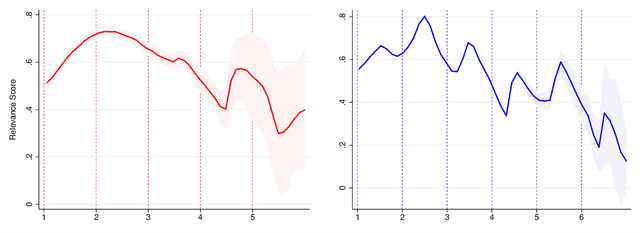It's All in the Name: A Character Based Approach To Infer Religion
Paper and Code
Oct 27, 2020



Demographic inference from text has received a surge of attention in the field of natural language processing in the last decade. In this paper, we use personal names to infer religion in South Asia - where religion is a salient social division, and yet, disaggregated data on it remains scarce. Existing work predicts religion using dictionary based method, and therefore, can not classify unseen names. We use character based models which learn character patterns and, therefore, can classify unseen names as well with high accuracy. These models are also much faster and can easily be scaled to large data sets. We improve our classifier by combining the name of an individual with that of their parent/spouse and achieve remarkably high accuracy. Finally, we trace the classification decisions of a convolutional neural network model using layer-wise relevance propagation which can explain the predictions of complex non-linear classifiers and circumvent their purported black box nature. We show how character patterns learned by the classifier are rooted in the linguistic origins of names.
 Add to Chrome
Add to Chrome Add to Firefox
Add to Firefox Add to Edge
Add to Edge